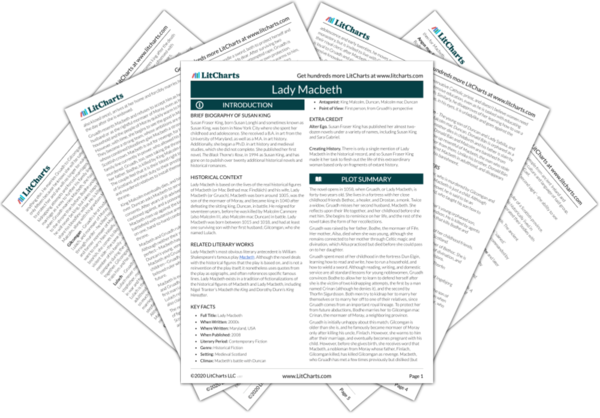Malcolm’s actions are entirely motivated by a desire for revenge. Even the wounds he inflicts on Macbeth are an attempt to right the wrongs he feels Macbeth committed against his own father; that the wound Macbeth suffer’s is similar to Duncan’s again suggests the cyclical, self-perpetuating nature of revenge and violence. Gruadh knew this would happen, because of Una’s prophecies, but now it is too late to do anything.
